Microsoft, Windows Phone 8 hardware must keep up with the times
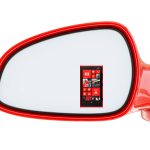
This is a question that I never thought I'd ask -- Is the hardware leaving Windows Phone 8 behind its fierce competition? In September last year, I asserted that "Windows Phone 8 is the best idea Microsoft has had in phone tech" after analyzing the new hardware requirements imposed by the software giant for its smartphone operating system. But as we all know eight months is a long time in the tech world.
This is a tough question to answer. After all, in January, BlackBerry unveiled the BlackBerry Z10 with pretty much the same hardware that was available for Windows Phone 8 at launch. Apple's iPhone 5 is also not far away in terms of specifications. So should Microsoft rest on its laurels and send the engineers on vacation? Well, no. As a smart man once said, "You can never have enough power". And even Windows Phone needs better hardware, although some die-hard fanboys would beg to differ.
Smartphones take the world stage, as BlackBerry and Nokia shipments collapse

In February, I predicted that smartphone sales would surpass feature phones within a couple quarters. Looks like I am likely wrong, as shipments already have, according to IDC. Last month the analyst firm predicted such circumstance this year, which by Q1 is sooner than anyone anticipated.
Meanwhile, something more shocking occurred turn first quarter -- my, God, when will the milestones stop? Chinese manufacturers Huawei and ZTE pushed BlackBerry and Nokia out of the top five. Right Nokia -- the company that invented the smartphone and had, until last year, a 14 year-run as global handset leader. The worldwide phone market undergoes dramatic changes, and they're far from over.
If Congress passes Internet sales tax legislation, you lose

It's almost as if some in Congress forget that we've been down this path before. Garbage legislation, now under the moniker of the Marketplace Fairness Act, has been discussed in various guises and masks over the last 20 years or so. Streamlined Sales Tax. Remote Sales Tax. Distant Sales Tax. They've been tried, debated and debunked each time before.
But it's funny how larger than ever state budget deficits perk up the ears of slimy congressmen on the umpteenth attempt at an Internet sales tax. While proponents like J Marra, writing for BetaNews this week, are in favor of this bill, I stand tall against it, without hesitation.
Does Microsoft have a developer crisis?

The web is now the next great application development platform. Webkit is by far the most popular development “platform” among the web development community. Many are calling for Microsoft to ditch Trident (the rendering engine in Internet Explorer) and replace it with Webkit. I personally think that would be a huge mistake and apparently Google feels the same way or it wouldn’t be forking Webkit as the basis of its own rendering engine.
Nevertheless, the web development community is uber focused on non-Microsoft technologies for development. This presents a big problem for Microsoft and ability to hold on to its development community. I believe Microsoft can overcome this threat if by making a few key moves.
Windows tablets make big share gains
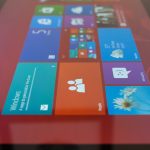
Back in December, I explained: "Surface RT sales are quite good, you just don't know about it". The Internet Idiocracy called the tablet a failure, while based on sales per store I saw success. Surface Pro shipped the following month. Now there are real numbers, and they're quite good -- for all Windows tablets -- validating touch-focused Modern UI.
During first quarter, Windows captured 7.5 percent global branded tablet market share, according to Strategy Analytics. That's up from zero a year earlier. Unit shipments: 3 million. Right now, Microsoft is the major seller of branded Windows tablets. Granted there are others, like Acer, ASUS, Dell, HP and Samsung.
Switching from Google to Microsoft, part 4 -- In with the Bing

Fourth in a series. Before I switched to using Bing full time my view of Microsoft’s search service was that it was a slightly less reliable alternative to Google, but with some smart touches. I’ve been using it for over a month now and -- spoiler alert -- I actually really like it. Although it’s far from perfect.
As a Brit I do have a gripe with Bing though, and that’s it presents me with two choices. I can set my country to UK and get results that relate more to my life, or I can set it to the United States and get an all-round better search experience. Seriously, what’s THAT all about, Bing?
Why less is more in the Windows 8 Modern UI
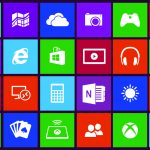
My Why I love Windows 8 piece last week generated a lot of comments and a good balance of pro and anti opinion. Thanks for taking the time to air your views. I received one particular comment concerning choice and that got me thinking that it was a subject which deserved a closer look.
In the past Windows has imposed relatively few restrictions on its users. You want to launch a program? You can click the desktop icon, select it from the start menu, select an icon from the task bar, use a gadget or track down the folder where it's stored and run it from there. You can even call up a command line if you want. It's your choice. As is installing a third-party menu system or an Apple-style widget bar, the permutations are endless.
Taxing Internet sales is the right thing to do

The fight to keep brick and mortar commerce subsidizing e-commerce is in a crucial stage today.
You never heard of that fight? It also goes under the guise of fighting "Internet sales taxes". A bill (the "Marketplace Fairness Act") is moving along in the Senate that requires merchants with $1 million or more in revenue to collect any sales taxes due in the state of the buyer.
Why I love Raspberry Pi

Sixth in a series. I’ve always admired the concept, execution and possibilities of Raspberry Pi, the British designed and built world-conquering credit card-sized ARM GNU/Linux computer. But despite following the Raspberry Foundation’s every move closely, and frequently promising that I’d buy myself a Pi soon, for some reason I never did.
A year came and went, and although a million Pis were sold in that time, I wasn’t one of the proud purchasers. But after my chat with the lovely Liz Upton, Head of Communications at Raspberry Pi Foundation (and wife of executive director Eben), I realized I had to rectify that mistake. Three weeks ago I finally ordered a Model B Pi, and minutes after powering it up, I knew I was in trouble.
Can social media help reduce the number of accidental fires? Maybe

According to the London Fire Brigade, the number of accidental fires involving young professionals (aged 18-35) in the UK capital has dropped by an average of nearly two a week since the fire service started using social media to deliver fire safety advice.
The Brigade set up its Twitter account and official Facebook page in 2009, and now has over 66,000 followers across both social sites.
Apple needs a COO, not new CEO
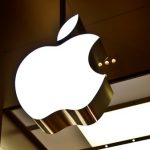
A rather fanciful and irresponsible commentary at Forbes today asserts Apple is looking for a new chief executive. "Some Wall Street sources close to some Apple executives say such a move is afoot", contributor Gene Marcial writes, without offering any more meaningful identification in that. What? Were the boys talking between toilet stalls again?
At the very best, his sources are second-hand. Hearsay. Regardless, replacing Tim Cook is the wrong solution because his management isn't the problem, nor should he be ousted simply because the stock is in freefall. The fruit-logo company is a money machine, enormous in his hands compared to predecessor Steve Jobs. What Cook lacks is what Jobs had: a chief operating officer. Apple needs to find one -- now -- and public COO search might even boost investor confidence, which lacking perplexes me, given how much money this company mints.
Boston bombing lesson: Surveillance cameras work

As we all recap the Boston bombing and manhunt events in our minds, looking for lessons learned, the one that sticks out in my head is the value of surveillance cameras. They were essential to catching the perpetrators and doing so quickly. More aggressive use of them might have resulted in even faster capture, and the civil rights and privacy concerns people express about them are hysterical overreaction.
The value of surveillance cameras was obvious almost immediately after the event. I remember many experts interviewed predicting that they would be used to narrow down suspects rather quickly. In fact, you don't need an expert to understand this. The only people who didn't seem to understand it well were the Tsarnaev brothers. They stayed in town and tried to go on with their lives, indicating that thought they wouldn't be detected. They must have freaked out when they saw their pictures on the news, but they still didn't get out of Dodge.
Why I love Nokia Lumia 920
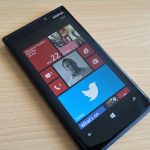
Fifth in a series. I'll admit it -- Nokia was a company I couldn't care less about a couple of years ago. I disliked the design, the high price and the bulkiness of its high-end smartphones, which then ran Symbian. At the time the Finnish manufacturer had the accelerator pedal mashed to the floor and was heading straight on a highway to oblivion, seemingly unwilling to steer the ship in the right direction. Android and iOS were the future and Symbian was the past. Then Nokia jumped ship to Windows Phone.
And that made a difference. As I embraced Windows Phone as my smartphone operating system of choice something happened. Nokia became interesting and appealing to me, so much so that I even bought a Lumia 920 little more than a month ago. And, to be honest, I'd never thought that one day I would own and love a Nokia smartphone. There's something about the Lumia 920 which feels right and makes the Finnish manufacturer fit perfectly into the Windows Phone picture.
Microsoft Windows sales are so good, they're scary

The "Microsoft's dead" meme is one of the most popular among tech bloggers and arm-chair pundit commenters. Posts are everywhere the last 30 days or so, fed this month by reports of record-weak PC shipments. After market close yesterday, with fiscal Q3 results, Microsoft proved critics wrong and showed just how much strength remains in the Windows franchise. More significantly, a dramatic change is underway, regarding which buyers generate more revenues.
IDC says that PC shipments fell 13.9 percent during calendar first quarter (Microsoft's fiscal third), and there was reasonable expectation Windows license sales would see similar fall off. Instead, when removing a one-time $1.085 billion deferral, Windows & Windows Live division revenue was flat ($4.62 billion) year over year. Given the sorry state of the PC market, flat isn't just good but great.
Set up two-step authentication for your Microsoft account on Windows Phone

Following the lead of a number of high-profile companies like Apple, Dropbox and Google, Microsoft has finally embraced two-step authentication. Two days ago, the company unveiled the feature which, in order to "help keep your account more secure", enables using security codes or application-specific passwords when accessing Microsoft services. Sadly, for Android and iOS users, Microsoft only offers a Windows Phone app, at this point, to generate security codes.
The app is called Authenticator and works with both Windows Phone 8 as well as Windows Phone 7.5 (ironically, it was the app that revealed Microsoft's plans to offer the security feature in the first place). This guide will show you how to enable two-step authentication for your Microsoft account and use Authenticator to generate security codes on your Windows Phone smartphone.
Recent Headlines
Most Commented Stories
© 1998-2025 BetaNews, Inc. All Rights Reserved. About Us - Privacy Policy - Cookie Policy - Sitemap.